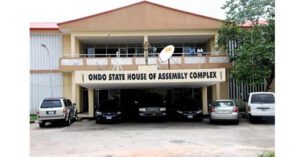


CBN discloses N339.9bn debt owed by 31 State Govts from salary bailout facility
A recent document obtained from the Central Bank of Nigeria (CBN) has revealed that thirty-one state governments are collectively owing N339.9bn, borrowed between 2015 and 2023 to settle workers’ salaries. This debt includes a loan default of N1.31bn as of September 2023.
The funds were part of the Salary Bailout Facility within a larger N10.3tn intervention package initiated by former CBN Governor Godwin Emefiele to alleviate the financial strains faced by states. Current CBN Governor, Olayemi Cardoso, has suspended the program amid ongoing economic challenges.
CBN clarified that the Salary Bailout Facility was designed to aid states in clearing salary arrears, emphasizing the significant role the CBN plays in stabilising the financial landscape during periods of fiscal difficulty for state administrations. The program involved extensive collaboration with beneficiary state governments, Deposit Money Banks, the Federal Ministry of Finance, and the Accountant-General of the Federation.
Although the program has ceased as per the status report, it involved collaboration from various stakeholders such as beneficiary state governments, Deposit Money Banks, the Federal Ministry of Finance, and the Accountant-General of the Federation, all actively involved in executing and managing the bailout scheme.
A breakdown from the report revealed that 31 states benefited from the initiative, receiving a total disbursement of N457.17bn. Despite the substantial disbursement, principal repayments amount to N117.21bn to date, along with interest repayments totaling N45.21bn.
States collectively borrowed N457.17bn to settle salary payments for their civil servants and an outstanding sum of N1.31bn.
Top beneficiaries of the bailout facility included Imo, Kogi, Kano, Oyo, and Osun, receiving sums ranging from N15.93bn to N20.46bn.
The inability of states to fulfill their primary obligation to their workforce has been a pressing issue, particularly amidst calls from labor unions to raise the minimum wage above the current N30,000.
In the financial year of 2023, twenty-four states in Nigeria turned to borrowing approximately N46.17 billion from three major banks—Access Bank, Zenith Bank Group, and Fidelity Bank—to meet salary obligations from January to June. Access Bank led the loan amounts with N42.97 billion, followed by Zenith Bank with N1.78 billion and Fidelity Bank with N1.42 billion over the six-month period, according to an analysis of mid-year financial statements.
This borrowing trend underscores the challenge faced by states in meeting salary payments without relying solely on federal allocations, despite improved disbursements. The situation highlights concerns over the financial health and revenue generation efficiency of these states, as their wage bills surpass internally generated revenues.
The affected states, including Bayelsa, Ondo, Yobe, Sokoto, Taraba, Plateau, Oyo, Niger, Nasarawa, Kogi, Kebbi, Katsina, Jigawa, Gombe, Ekiti, Ebonyi, Borno, Benue, Bauchi, Adamawa, Akwa Ibom, Cross River, Abia, and Delta, face significant workforce productivity challenges.
Notably, state governors received their highest disbursements from the Federal Account Allocation Committee in seven years in 2023, attributed to reforms such as the removal of petrol subsidy and currency adjustments by the current administration, resulting in a reported 40 percent increase in revenue.



